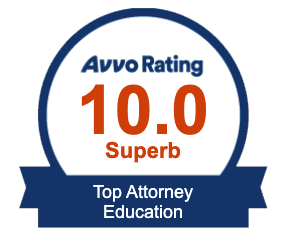It is hard to believe that the 2014-2015 has finally arrived. The school buses are busy traveling downs the roads and streets to pick up the children and dropping them off to their schools as summer vacation has officially end. The first days of school are usually more difficult for many children with disabilities. This is particularly true for children that are moving from elementary school to middle school or middle school to high school. The youngers have to get used to a different building, classes, and teachers, and also new classmates. The transition process is very important for these children. To get off to a good start, parents should pay careful attention to their children with disabilities that will have a hard time adjusting to new schools, teachers, and classmates. Children with autism, intellectual disabilities and behavior disorders may have more difficulty because of their problems with generalization from one setting to another.
What can you do as a parent to make the beginning of the school year easier for you and your child? You can revisit the annual IEP developed for your child to determine if it is working. In other words, is your child making educational progress for the first semester or 9 weeks of school? You can check your child’s IEP to determine how each goal and objective is to be measured. Many IEPs require data collection. You should secure this data from the school system periodically during the semester. Some parents want daily data and other parents are okay with receiving data less frequently. It can be overwhelming and confusing at times to understand the data and what it says about your child. Regardless of the frequently of data collection, you want to make sure that after the first nine weeks of the semester your child is making some progress toward mastering his or her IEP goals and objectives. Some parents like to ask for an IEP meeting after the first semester and in fact, some IEPs are written to require such meetings. It is hard to generalize as sometimes it is a good idea to meet after the first semester to review your child’s progress and sometimes it is not necessary. It will depend upon a number of factors including how often the goals and objectives are measured in the IEP, the severity of your child’s disability and the level of functioning of your child. You may know from past experience how often it may be necessary to convene an IEP meeting to discuss your child’s progress. And in other instances, you may only need to meet informally with your child’s teachers to receive sufficient information about your child’s progress. Use your best judgment and the input of professionals, if possible, in making this decision.

